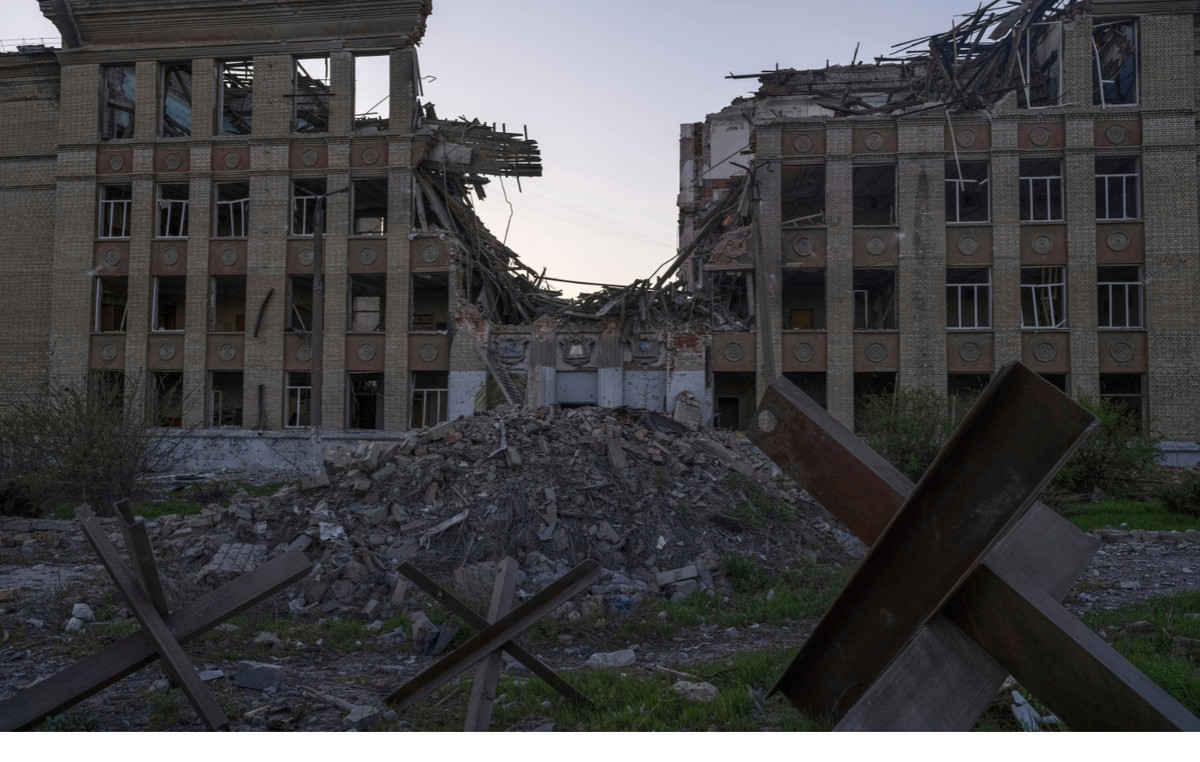Israel, helped by its allies, escaped a bullet on Sunday (14).
To be more precise, 60 tons of explosives aboard more than 350 Iranian projectiles, some larger than a family car, failed to get past Israel's defenses.
Yet Israel, defying US President Joe Biden's warnings to “accept victory” and Iranian President Ebrahim Raisi's threat of a “severe, extensive and painful” response to any retaliation, is contemplating just that.
Israel believes that deterrence – a sort of synonym for “the meanest guy in the room” – is the cornerstone of its survival. And Iran is trying to steal this stone.
In a paradigm shift after decades of militia warfare, Tehran is usurping Israel's strategy.
“We decided to create a new equation,” said Iranian Islamic Revolutionary Guard Corps (IRGC) Commander Hossein Salami. “We will retaliate against them [Israel]”.
When faced with existential threats in the past, Israel has carried out the most audacious attacks the region has ever witnessed.
Camouflaged in extreme secrecy in 1981, they bombed Iraq's nuclear reactor at Osirak before it went into operation. Similarly, in 2007, they bombed Syrian dictator Bashar al Assad's nuclear reactor before it could be built.
Both attacks linked intelligence with conventional military assets. Eleven years passed before Israel admitted the attack in Syria.
The point is that Israel does not telegraph its attack plans like Iran did over the weekend.
In addition to the core members of Israel's war cabinet — Prime Minister Benjamin Netanyahu, Defense Minister Yoav Gallant and Netanyahu's longtime political rival Benny Ganz — more than a dozen other people sat at the table inside the Kirya , Israel's maximum security defense headquarters in Tel Aviv, to determine strategies for the next step.
Notably, Mossad chief David Barnea and Army Chief of Staff Herzi Halevi are among several security and intelligence officials who have been brought in.
Outside the room, Netanyahu faces enormous pressure from his hard-right coalition government. Bezalel Smotrich is demanding that he “restore deterrence,” and popular National Security Minister Itamar Ben-Gvir is pushing the prime minister to “go all out.”
Outside Israel, where allies are condemning Iran's attack but calling for restraint and some are also embittered by Netanyahu's deadly treatment of Gaza's Palestinians since the brutal Hamas attack on Oct. 7, calls for new sanctions against Tehran are growing. growing.
War cabinet members Ganz and Gallant seize the diplomatic opportunity – Ganz says, “we will build a regional coalition to exact a price on Iran,” while Gallant, according to a government press release, “highlighted the opportunity to establish an international coalition and strategic alliance to combat the threat posed by Iran.” The defense minister strongly insinuated that Iran's nuclear facilities are in his sights, saying it is “a state that threatens to put nuclear warheads on its missiles.”
Netanyahu, however, said in a statement on the Israeli government's X profile, “the international community must remain united in resisting this Iranian aggression, which threatens world peace.”
Netanyahu's next move will likely be to try to block sanctions and strike before negative headlines from Gaza disperse international goodwill.
Clock is ticking. He needs two things, time to prepare a significant surprise attack, and time to unite international diplomacy. As they both march in different directions, their legendary political acumen faces one of its toughest tests yet.
Recent evidence suggests that your finger no longer feels the regional pulse like it used to.
Earlier this year, following the precise assassination of Saleh Al-Arouri, the Lebanese head of Hamas, in a second-floor apartment in Beirut, the former fighter pilot and former head of the Military Intelligence Directorate of the Israel Defense Forces (IDF), Amos Yadlin, told me that Israel was acting within “red lines” to avoid escalation.
“The threshold is quite flexible,” Yadlin explained. “Deterrence is a decision in front of a leader who can give a command to pull the trigger to launch a missile to start a war.”
Yadlin has a wealth of knowledge about deterrence and Israel's past attacks on the nation's existential threats. He was the fighter pilot who dropped the bomb that destroyed Iraq's Osirak reactor in 1981, and in 2007 he was the intelligence chief who planned the sophisticated and audacious attack destroying Bashar al-Assad's nuclear plant.
Last weekend, Iranian leaders decided that Netanyahu would kill Mohammad Reza Zahedi, the IRGC commander who commanded his proxies threatening Israel from Syria and Lebanon, in his consulate in Damascus on April 1, had crossed a red line. Netanyahu's calculation was wrong.
“I think the Iranians will be very, very careful, even if after a provocation they suffer a loss, but starting a war with the US or even with Israel… They have still reached that point. The damage that could be inflicted on Iran is enormous, it is enormous.”
So the most important question now must be: Can Netanyahu interpret the situation correctly – with Iran threatening to attack, allies warning him not to – and avoid triggering a regional war?
And the answer to that is buried in Yadlin's remarkable insights.
Iran, he hinted, will not attack Israel as long as it fears US reaction. Netanyahu has such tense relations with the Biden administration over Gaza that Israel's enemies smell blood.
Since the US abstained in a UN Security Council vote last month to call for a ceasefire in Gaza, Hamas has taken an uncompromising stance in hostage negotiations.
Netanyahu is famous as a political survivor. But now he faces the biggest gamble of his career. He is betting his nation's blood on Iran's reading of its break with America.
Source: CNN Brasil
Bruce Belcher is a seasoned author with over 5 years of experience in world news. He writes for online news websites and provides in-depth analysis on the world stock market. Bruce is known for his insightful perspectives and commitment to keeping the public informed.







